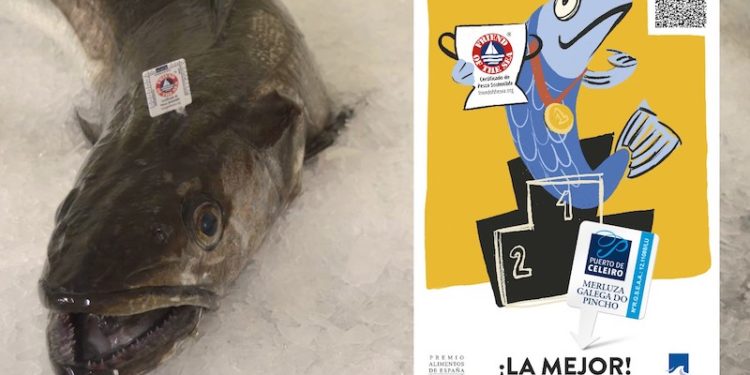Spanish consumers now have access to more certified sustainable hake now that the entire Puerto de Celeiro fleet has completed Friend of the Sea certification, and has been audited by accredited independent bodies. Puerto de Celeiro provides around 30% of the hake consumed in Spain.
The entire Puerto de Celeiro fleet of 22 longliners has been certificated and the company has implemented a number of additional sustainability practices, such as new waste management policies and the use of tori lines to deter seabirds from coming too close to the fishing gear.
‘Our hake is a quality product, sustainable and whose origin is recognised and accredited, and we want this information to reach the consumer,’ said Eduardo Míguez López at Puerto de Celeiro.
‘In addition, it seems that the commitment of vessel owners to this programme, along with the expected support from consumers, will generate up to six new direct jobs in the fish market on busy nights, as expected this Monday, when we needed twelve additional people,’
To celebrate this milestone, Puerto de Celeiro OPP 77 invited the media and regional government authorities to attend the early morning unload and auction, with Galician Regional Fisheries Commissioner Rosa Quintana and Friend of the Sea director Paolo Bray taking part.
‘Friend of the Sea is glad to acknowledge this step by the Puerto de Celeiro hake fleet toward verified sustainable fishing practices,’ Paolo Bray explained.
‘We hope that soon other Spanish and European fisheries will choose certification, improve practices and reduce their environmental impact. It is fundamental for the future of the fishing industry to exploit marine resources in a more sustainable way.’
Puerto de Celeiro has recently been awarded the Alimentos de España prize in the fisheries and aquaculture production category granted by the Ministry of Agriculture and Fisheries, Food and Environment.
The jury highlighted the trajectory and the new approach that this business group gives to the management of the production and marketing of the hake with a strategy of differentiation through sustainability and quality.









